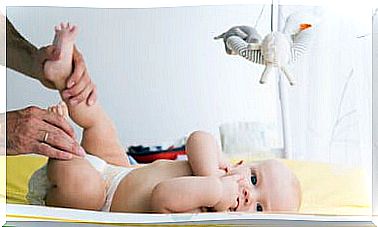How To Stimulate A Child’s Scientific Thinking?

Stimulating scientific thinking has many benefits for the child, not only in educational terms, but also in his or her daily life and overall development. The development of reasoning and logical thinking helps the child to solve problems and adapt to new situations. Today we consider how to stimulate a child’s scientific thinking.
Why is it important to stimulate a child’s scientific thinking?
When we talk about scientific thinking, we are not only referring to matters related to science, such as mathematics, science, or technology, but we also mean the ability to be autonomous and the ability to solve everyday problems. It is important to stimulate a child’s scientific thinking as he or she develops all the time, and anything that provides him or her with cognitive stimulation is positive for his or her development.
The benefits of stimulating a child’s scientific thinking include:
- Teaches children to solve everyday problems.
- The child learns to observe and analyze what is happening in his environment. At the same time, it improves reasoning and promotes the formation of more complex ideas.
- Develops the child’s educational capacity and enables the learning of various strategies to help the child find solutions for himself.
- Strengthens the child’s relationship with his environment and the way the child perceives his environment.
- Helps improve a child’s learning.
- Improves spatial perception and the child’s relationship to the physical environment, such as its shapes and parts).
Here were just some of the benefits of stimulating a child’s scientific thinking. It enables the child to face difficult situations and analyze them from different perspectives. The child also develops a global perspective on the world in which we live.

What should be considered in stimulating scientific thinking?
In order for a child to develop proper scientific thinking, certain essential aspects need to be considered:
- Use scientific thinking in your child’s daily life.
- Use logic to solve complex situations.
- Provide the child with skills and techniques that will enable the child to perceive and analyze their environment to behave appropriately.
- Encourage your child to try, even if he or she makes mistakes. The child should be allowed to try different strategies, and if they do not work, the child should change their procedure. Making mistakes is part of learning, and this is a concept that it is important for a child to understand for themselves.
How to stimulate a child’s scientific thinking?
With the help of scientific thinking, the child is able to relate facts, thoughts and reasons to their effects. If we utilize simple exercises in our daily lives, we help the child develop scientific thinking, logic, and reasoning skills. Here are some tips you can apply with your child.
Encourage your child to be curious
It is important for parents to encourage the child to explore all the objects around him or her so that he or she begins to understand how they work and what they exist for. This means handling objects as well as doing trial-and-error exercises. From an early age, it would be important for a child to be able to handle all kinds of objects, including e.g. various materials, fabrics and toys. However, the objects must be safe for the child. Through the sense of touch and sight, the child learns to distinguish objects by color, size, and shape. Similarly, the child also explores the characteristics and functions of objects. As your child grows older, you can create your own scientific studies at home to analyze cause-and-effect relationships.
Ask questions to encourage your child to take an interest in things
Many children are very interested and curious and ask a lot of questions – other children don’t so much again. The curiosity of the latter children can be aroused by asking them questions about the world around them. At the same time, it is good for parents to encourage them to find an explanation for things they do not yet understand.

Let the child practice and try to solve the problems themselves
Parents should let the child look for solutions to the problems themselves, as long as it is safe. The child can find solutions when a problem arises by examining and manipulating objects. However, this should take place under parental supervision, requiring parental patience. You can give your child advice if necessary.
Take advantage of play and imagination
You can provide your child with simple challenges that he or she can try to solve. For example, you can start by telling a story that the child continues by explaining what happens to the people in the story, how they think, and how they react to things.
Take advantage of stories
Stories can be a great tool to promote a child’s scientific thinking. Read the story to the child and then ask him or her questions related to the story. This helps to develop the child’s reasoning ability as well as understanding. As the child is older, he or she can look for answers to questions using other books, for example.
Guides the child’s learning gently
When a child encounters a problem that he or she cannot solve, do not give him or her a solution. Instead, you can offer the child clues or ask questions that lead to the child’s solution.









